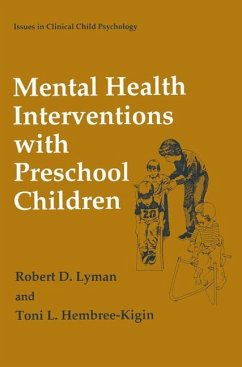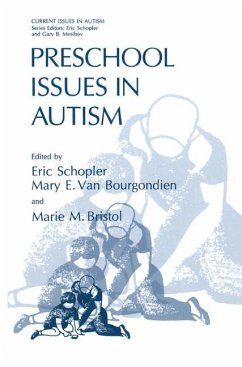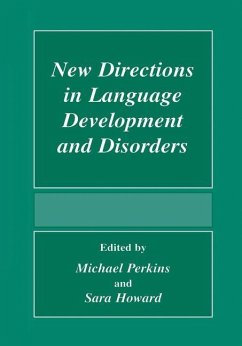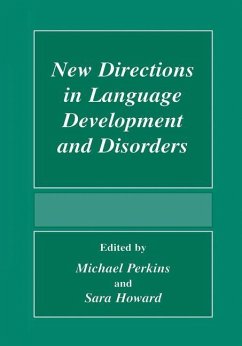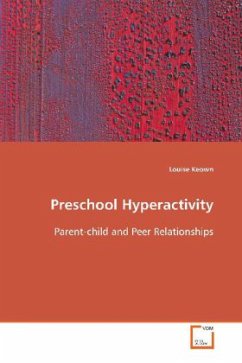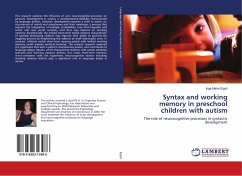
Syntax and working memory in preschool children with autism
The role of neurocognitive processes in syntactic development
Versandkostenfrei!
Versandfertig in 6-10 Tagen
32,99 €
inkl. MwSt.

PAYBACK Punkte
16 °P sammeln!
This research explores the influence of core neurocognitive processes on syntactic development in autism, a developmental disability characterized by language deficits. Syntactic development requires a child to match co-occurrences of words and morphemes and their meanings, a process that requires the integration of multiple, probabilistic cues from linguistic and social, and real- world contexts, and thus may depend on working memory. Paradoxically, the limited short-term verbal memory characteristic of typically developing children may improve their ability to perform this mapping process by...
This research explores the influence of core neurocognitive processes on syntactic development in autism, a developmental disability characterized by language deficits. Syntactic development requires a child to match co-occurrences of words and morphemes and their meanings, a process that requires the integration of multiple, probabilistic cues from linguistic and social, and real- world contexts, and thus may depend on working memory. Paradoxically, the limited short-term verbal memory characteristic of typically developing children may improve their ability to perform this mapping process by heightening the salience of small meaningful units. In contrast, efficient verbal short-term memory paired with limited working memory could impede syntactic learning. The present research explored the hypothesis that such a pattern characterizes autism, and contributes to language delays. Results, which showed that children with autism exhibited syntactic and working memory deficits, but intact short-term memory, were consistent with this hypothesis. Neurocognitive factors including working memory deficits play a significant role in language delays in autism.



